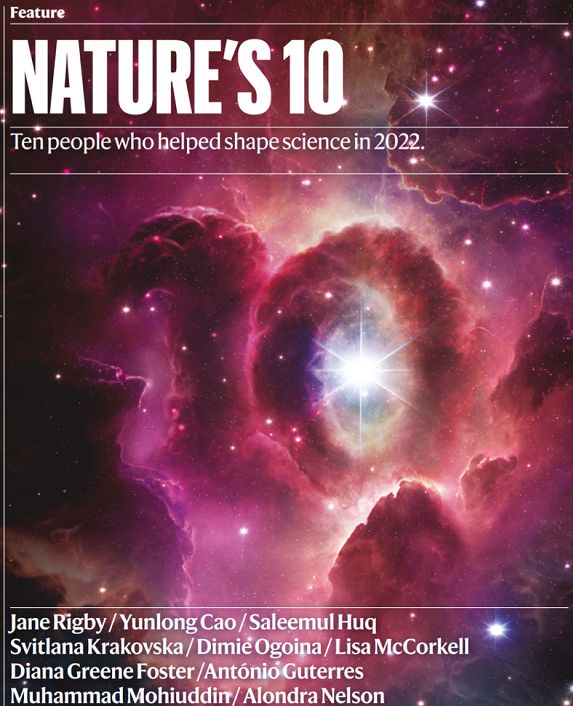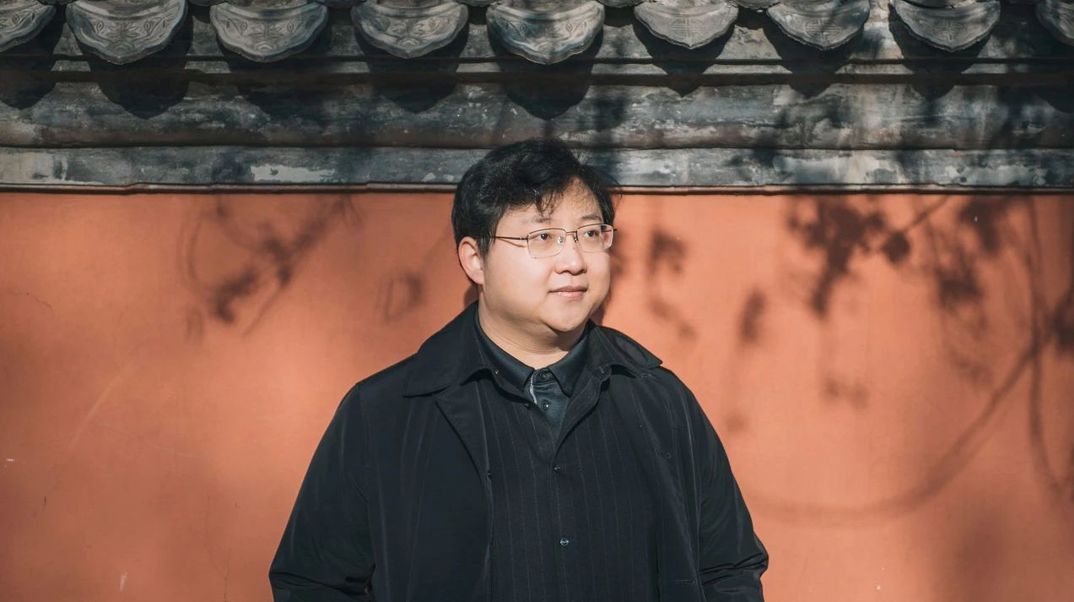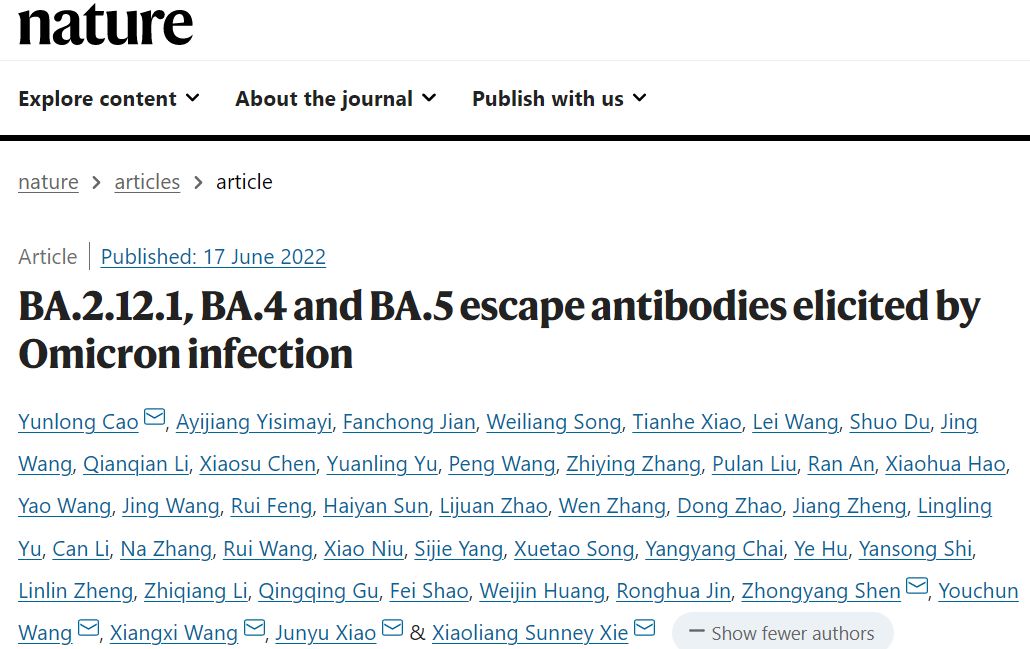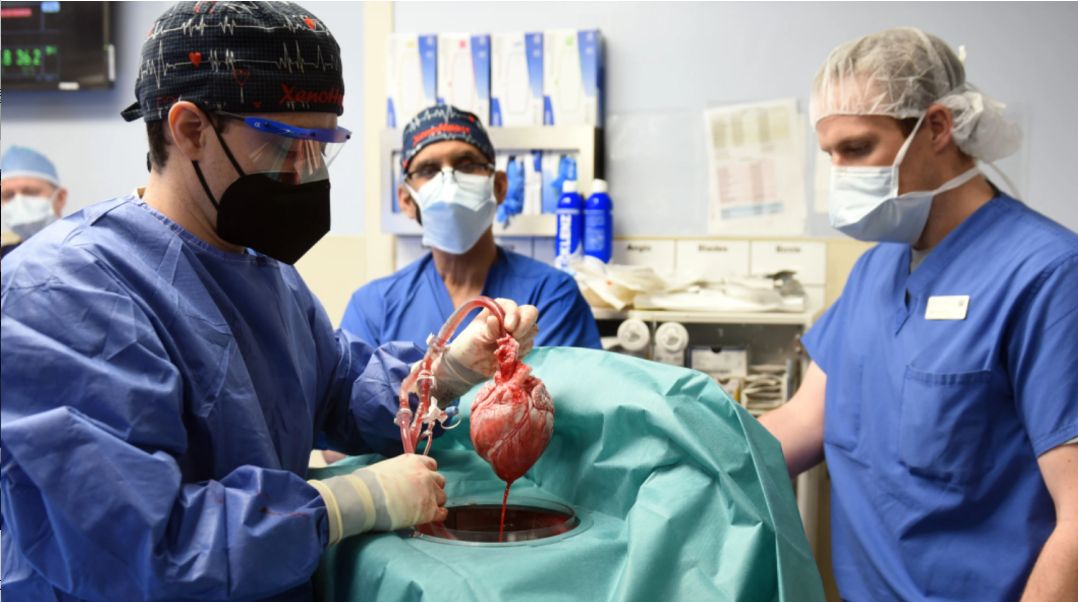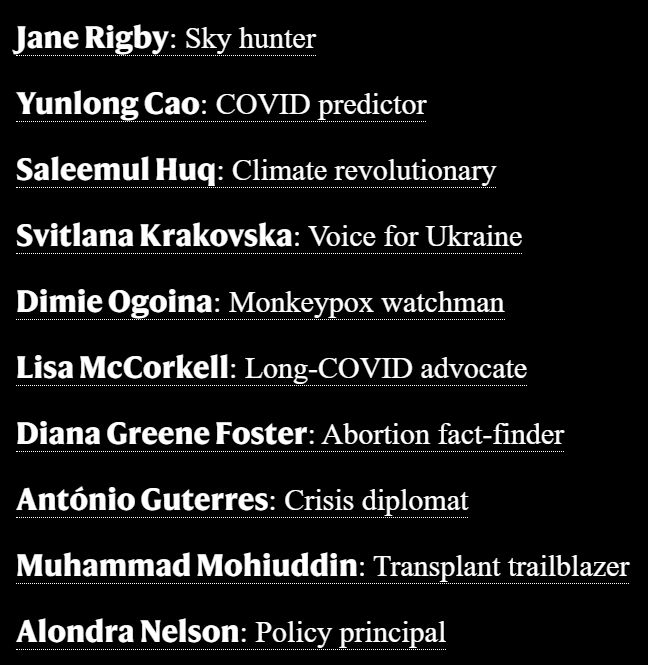Peking University’s Yunlong Cao named for new coronavirus research
On 15 December 2022, Nature announced its Nature’s 10, a list of ten people who have been a part of the year’s major scientific events, and whose stories offer a unique perspective on some of the most significant scientific events of this extraordinary year.
In a year of crises and exciting discoveries, Nature chose ten people from astronomers who have helped us understand the universe’s most distant existence, to researchers who have been instrumental in the New Crown and monkeypox epidemics, to surgeons who have broken the limits of organ transplantation, says Rich Monastersky, editor-in-chief of Nature Features.
Yunlong Cao is from the Biomedical Frontier Innovation Center (BIOPIC) at Peking University. Dr. Cao graduated from Zhejiang University with a Bachelor’s degree in Physics and received his PhD from Harvard University’s Department of Chemistry and Chemical Biology under Xiaoliang Xie, and is currently a Research Associate at the Biomedical Frontier Innovation Center at Peking University. Yunlong Cao has been focusing on the development of single-cell sequencing technologies, and his research has helped to track the evolution of new coronaviruses and predict some of the mutations that lead to the creation of new mutant strains.
On 18 May 2020, Xiaoliang Xie/Yunlong Cao et al. published a paper in the journal Cell entitled: “Potent neutralizing antibodies against SARS-CoV-2 identified by high-throughput single-cell sequencing of convalescent patients’ B cells” The research paper.
This study reports the results of a new coronavirus (SARS-CoV-2) neutralising antibody screen, which used a high-throughput single-cell RNA and VDJ sequencing platform to identify 14 strongly neutralising monoclonal antibodies from over 8500 antigen-bound IgG1 antibodies in 60 recovered COVID-19 patients.
This study demonstrates for the first time that high-throughput single-cell sequencing can be used directly for drug discovery and has the advantage of being a rapid and effective process, which promises to revolutionise the way people screen for neutralising antibodies to infectious viruses.
On 17 June 2022, Xiaoliang Xie/Yunlong Cao et al. published a paper entitled: BA.2.12.1, BA.4 and BA.5 escape antibodies elicited by Omicron infection in the journal Nature.
This study found that the new subtypes of the Omicron mutant strains BA.2.12.1, BA.4 and BA.5 showed increased immune escape and a significant neutralisation of plasma escape in recovered Omicron BA.1-infected patients.
These findings suggest that the BA.1-based Omicron vaccine may no longer be suitable as a booster in the current immunisation context and that the antibodies induced will not provide broad-spectrum protection against the new mutant strain. Furthermore, herd immunity through Omicron infection is extremely difficult to achieve due to the ‘immunogenic’ phenomenon of new coronaviruses and the rapid evolution of immune escape mutation sites.
On 30 October 2022, Xiaoliang Xie/Yunlong Cao’s team published a research paper entitled: Imprinted SARS-CoV-2 humoral immunity induces convergent Omicron RBD evolution in the preprint bioRxiv.
This study suggests that the advantage of XBB over BQ.1 may be due in part to changes outside the receptor binding domain (RBD) of the spinosin, that XBB also has mutations in parts of the genome encoding the N-terminal structural domain (NTD) of the spinosin, and that XBB is able to escape neutralizing antibodies against the NTD, which may allow it to infect people immune to BQ.1 and related subtypes. However, it is worth noting that mutations in the NTD region are occurring in BQ.1 at an extremely rapid rate. These mutations greatly enhance the ability of these variants to escape the neutralizing antibodies produced by vaccination and previous infections.
Dr. Yunlong Cao said that there may be some protection against XBB if infected with BQ.1, but further research is needed to provide evidence for this.
In addition to Yunlong Cao, two other people made the list for their outstanding contributions to global public health issues, Lisa McCorkell and Dimie Ogoina.
Lisa McCorkell is a researcher with Long COVID and as a founding member of the Patient-Led Research Collaborative, she has helped to raise awareness and funding for research into the disease.
Dimie Ogoina is an infectious disease physician at the Niger Delta University in Nigeria and his work on the monkeypox epidemic in Nigeria has provided key information in the fight against the monkeypox epidemic.
On 10 January 2022, the University of Maryland School of Medicine announced the world’s first successful gene-edited pig heart implant in a living person, when 57-year-old heart patient David Bennett received a gene-edited pig heart transplant to save his life.
Although this pig heart has only extended David Bennett’s life by two months, it has been a huge success and a historic breakthrough in the field of xenotransplantation. Muhammad Mohiuddin, the surgeon who led the team that completed this human transplant of a genetically-edited pig heart, was undoubtedly named to Nature’s Top 10 People of the Year list.
Several others were selected for advancing extraordinary scientific achievements and important policy advances, including astronomer Jane Rigby of NASA’s Goddard Space Center, who played a key role in the Webb Space Telescope’s mission to get the telescope into space and working properly, taking mankind’s ability to explore the universe to a new and higher level. alondra Nelson, as the U.S. Science and Technology Policy Acting Director of the Office of Science and Technology, helped the administration of President Biden develop important elements of its science agenda, including a policy on scientific integrity and new guidelines on open science. Diana Greene Foster, an abortion researcher and demographer at the University of California, San Francisco, provided key data on the expected impact of the US Supreme Court’s decision to overturn legal protections for abortion rights.
There are also names on this year’s top ten list that are relevant to the development of climate change and other global crises. They are: António Guterres, Secretary-General of the United Nations, Saleemul Huq, Director of the International Centre for Climate Change and Development in Dhaka, Bangladesh, and Svitlana Krakovska, Head of the Ukrainian delegation to the UN Intergovernmental Panel on Climate Change (IPCC).
Post time: Dec-19-2022
 中文网站
中文网站


